Frequent persons on Uruguay's street signs
countries
209 names / 2467 streets
José Gervasio Artigas
 162
José Gervasio Artigas Arnal was a soldier and statesman who is regarded as a national hero in Uruguay and the father of Uruguayan nationhood.
162
José Gervasio Artigas Arnal was a soldier and statesman who is regarded as a national hero in Uruguay and the father of Uruguayan nationhood.
Fructuoso Rivera
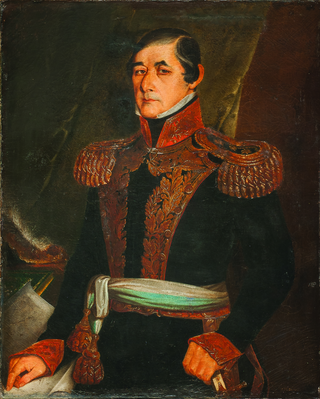 118
José Fructuoso Rivera y Toscana was an Uruguayan general and patriot who fought for the liberation of Banda Oriental from Brazilian rule, thrice served as President of Uruguay and was one of the...
118
José Fructuoso Rivera y Toscana was an Uruguayan general and patriot who fought for the liberation of Banda Oriental from Brazilian rule, thrice served as President of Uruguay and was one of the...
Juan Antonio Lavalleja
 115
Juan Antonio Lavalleja y de la Torre was a Uruguayan revolutionary and political figure. He was born in Minas, nowadays being located in the Lavalleja Department, which was named after him.
115
Juan Antonio Lavalleja y de la Torre was a Uruguayan revolutionary and political figure. He was born in Minas, nowadays being located in the Lavalleja Department, which was named after him.
José Pedro Varela
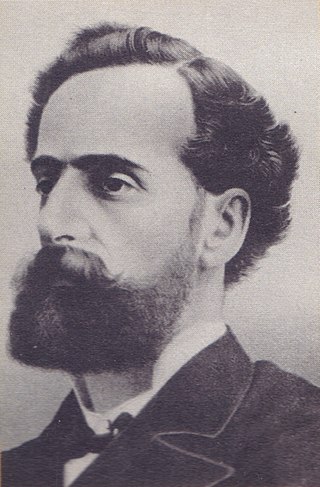 83
José Pedro Varela Berro was an Uruguayan sociologist, journalist, politician, and educator. He was born in Montevideo.
Uruguay adopted free, compulsory, and secular education in 1876, thanks to his...
83
José Pedro Varela Berro was an Uruguayan sociologist, journalist, politician, and educator. He was born in Montevideo.
Uruguay adopted free, compulsory, and secular education in 1876, thanks to his...
Manuel Oribe
 66
Manuel Ceferino Oribe y Viana was the 2nd Constitutional president of Uruguay and founder of Uruguay's National Party, the oldest Uruguayan political party and considered one of the two Uruguayan...
66
Manuel Ceferino Oribe y Viana was the 2nd Constitutional president of Uruguay and founder of Uruguay's National Party, the oldest Uruguayan political party and considered one of the two Uruguayan...
José Enrique Rodó
 58
José Enrique Camilo Rodó Piñeyro was a Uruguayan essayist.
He cultivated an epistolary relationship with important Hispanic thinkers of that time, Leopoldo Alas (Clarín) in Spain, José de la...
58
José Enrique Camilo Rodó Piñeyro was a Uruguayan essayist.
He cultivated an epistolary relationship with important Hispanic thinkers of that time, Leopoldo Alas (Clarín) in Spain, José de la...
Luis Alberto de Herrera
 57
Luis Alberto de Herrera was a Uruguayan lawyer, diplomat, journalist and politician.
57
Luis Alberto de Herrera was a Uruguayan lawyer, diplomat, journalist and politician.
Aparicio Saravia
 56
Aparicio Saravia da Rosa was a Uruguayan politician and military leader. He was a member of the Uruguayan National Party and was a revolutionary leader against the Uruguayan government.
56
Aparicio Saravia da Rosa was a Uruguayan politician and military leader. He was a member of the Uruguayan National Party and was a revolutionary leader against the Uruguayan government.
Joaquín Suárez
 49
Joaquín Luis Miguel Suárez de Rondelo y Fernández fue un político uruguayo, prócer de la independencia y Presidente de Uruguay.
49
Joaquín Luis Miguel Suárez de Rondelo y Fernández fue un político uruguayo, prócer de la independencia y Presidente de Uruguay.
José Batlle y Ordóñez
 48
José Pablo Torcuato Batlle y Ordóñez, nicknamed Don Pepe, was a prominent Uruguayan politician, who served two terms as President of Uruguay for the Colorado Party. He was the son of a former...
48
José Pablo Torcuato Batlle y Ordóñez, nicknamed Don Pepe, was a prominent Uruguayan politician, who served two terms as President of Uruguay for the Colorado Party. He was the son of a former...
Líber Seregni
 45
Líber Seregni Mosquera was a Uruguayan military officer and politician. In his youth he was a member of the Colorado Party. Under successive governments of that party, he had a successful military...
45
Líber Seregni Mosquera was a Uruguayan military officer and politician. In his youth he was a member of the Colorado Party. Under successive governments of that party, he had a successful military...
Wilson Ferreira Aldunate
 45
Wilson Ferreira Aldunate (1919–1988) was a Uruguayan politician and a historically important member of the National Party.
45
Wilson Ferreira Aldunate (1919–1988) was a Uruguayan politician and a historically important member of the National Party.
Juan Zorrilla de San Martín
 44
Juan Zorrilla de San Martín was an Uruguayan epic poet and political figure. He is referred to as the "National Poet of Uruguay".
44
Juan Zorrilla de San Martín was an Uruguayan epic poet and political figure. He is referred to as the "National Poet of Uruguay".
Florencio Sánchez
 38
Florencio Sánchez was a Uruguayan playwright, journalist and political figure. He is considered one of the founding fathers of theater in the River Plate region of Argentina and Uruguay.
38
Florencio Sánchez was a Uruguayan playwright, journalist and political figure. He is considered one of the founding fathers of theater in the River Plate region of Argentina and Uruguay.
Leandro Gómez
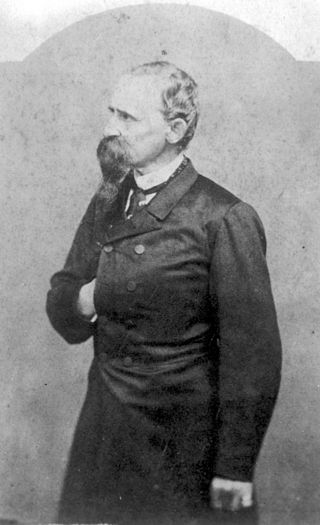 37
José María Leandro Gómez Calvo, better known as Leandro Gómez was a Uruguayan military officer and politician. A member of the National Party, he is best remembered for his heroical defense during...
37
José María Leandro Gómez Calvo, better known as Leandro Gómez was a Uruguayan military officer and politician. A member of the National Party, he is best remembered for his heroical defense during...
Christopher Columbus
 36
Christopher Columbus was an Italian explorer and navigator from the Republic of Genoa who completed four Spanish-based voyages across the Atlantic Ocean sponsored by the Catholic Monarchs, opening...
36
Christopher Columbus was an Italian explorer and navigator from the Republic of Genoa who completed four Spanish-based voyages across the Atlantic Ocean sponsored by the Catholic Monarchs, opening...
Treinta y Tres Orientales
 36
Los Treinta y Tres Orientales es el nombre con el que se conoce a los hombres que, liderados por Juan Antonio Lavalleja y Manuel Oribe, en 1825, emprendieron una insurrección para reincorporar la...
36
Los Treinta y Tres Orientales es el nombre con el que se conoce a los hombres que, liderados por Juan Antonio Lavalleja y Manuel Oribe, en 1825, emprendieron una insurrección para reincorporar la...
Cry of Asencio
 32
The Cry of Asencio or Admirable alarm was an 1811 pronunciamiento that took place at the Banda Oriental against the Spanish rule in Montevideo. Made in support of Buenos Aires, which had already...
32
The Cry of Asencio or Admirable alarm was an 1811 pronunciamiento that took place at the Banda Oriental against the Spanish rule in Montevideo. Made in support of Buenos Aires, which had already...
Saint Joseph
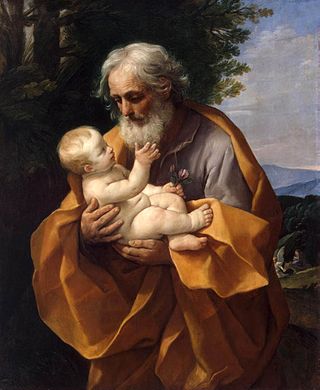 31
Joseph was a 1st-century Jewish man of Nazareth who, according to the canonical Gospels, was married to Mary, the mother of Jesus, and was the legal father of Jesus.
31
Joseph was a 1st-century Jewish man of Nazareth who, according to the canonical Gospels, was married to Mary, the mother of Jesus, and was the legal father of Jesus.
Juana de Ibarbourou
 30
Juana Fernández Morales de Ibarbourou, also known as Juana de América, was a Uruguayan poet and one of the most popular writers of Spanish America. Her poetry, the earliest of which is often highly...
30
Juana Fernández Morales de Ibarbourou, also known as Juana de América, was a Uruguayan poet and one of the most popular writers of Spanish America. Her poetry, the earliest of which is often highly...
José de San Martín
 26
José Francisco de San Martín y Matorras, nicknamed "the Liberator of Argentina, Chile and Peru", was an Argentine general and the primary leader of the southern and central parts of South America's...
26
José Francisco de San Martín y Matorras, nicknamed "the Liberator of Argentina, Chile and Peru", was an Argentine general and the primary leader of the southern and central parts of South America's...
Tomás Berreta
 24
Tomás Berreta Gandolfo was the President of Uruguay for five months in 1947.
24
Tomás Berreta Gandolfo was the President of Uruguay for five months in 1947.
Baltasar Brum
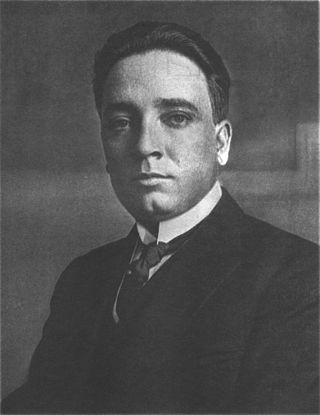 23
Baltasar Brum Rodríguez, GCTE was a Uruguayan political figure. He was President of Uruguay from 1919 to 1923.
23
Baltasar Brum Rodríguez, GCTE was a Uruguayan political figure. He was President of Uruguay from 1919 to 1923.
Juan Manuel Blanes
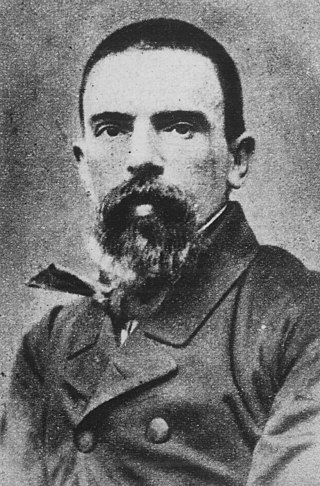 23
Juan Manuel Blanes was a Uruguayan painter of the Realist school.
23
Juan Manuel Blanes was a Uruguayan painter of the Realist school.
Francisco Acuña de Figueroa
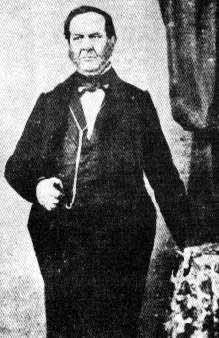 23
Francisco Esteban Acuña de Figueroa was a Uruguayan poet and writer. He was born in Montevideo, on September 3, 1791 and died on October 6, 1862. He was the son of the Treasurer of the Royal...
23
Francisco Esteban Acuña de Figueroa was a Uruguayan poet and writer. He was born in Montevideo, on September 3, 1791 and died on October 6, 1862. He was the son of the Treasurer of the Royal...
Zapicán (cacique)
 22
Zapicán fue un cacique de la tribu Charrúa, conocido por haber vencido a los conquistadores españoles comandados por el Adelantado Juan Ortiz de Zárate en el Combate de San Gabriel en 1573
22
Zapicán fue un cacique de la tribu Charrúa, conocido por haber vencido a los conquistadores españoles comandados por el Adelantado Juan Ortiz de Zárate en el Combate de San Gabriel en 1573
Leonardo Olivera
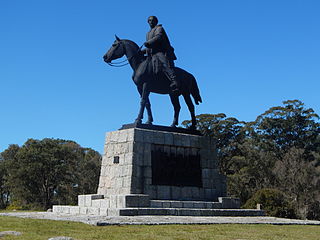 22
Leonardo Olivera Texeyra fue un militar uruguayo que participó en las luchas de independencia de su país. Se considera que su casa natal se encontraba en el Rincón de los Olivera, paraje ubicado...
22
Leonardo Olivera Texeyra fue un militar uruguayo que participó en las luchas de independencia de su país. Se considera que su casa natal se encontraba en el Rincón de los Olivera, paraje ubicado...
Carlos Gardel
 20
Carlos Gardel was a French-born Argentine singer, songwriter, composer and actor, and the most prominent figure in the history of tango. He was one of the most influential interpreters of world...
20
Carlos Gardel was a French-born Argentine singer, songwriter, composer and actor, and the most prominent figure in the history of tango. He was one of the most influential interpreters of world...
Juan Díaz de Solís
 20
Juan Díaz de Solís was a 16th-century navigator and explorer. He is also said to be the first European to land on what is now modern day Uruguay.
20
Juan Díaz de Solís was a 16th-century navigator and explorer. He is also said to be the first European to land on what is now modern day Uruguay.
Zelmar Michelini
 18
Zelmar Raúl Michelini Guarch was a Uruguayan reporter and politician, assassinated in Buenos Aires in 1976 as part of Operation Condor.
18
Zelmar Raúl Michelini Guarch was a Uruguayan reporter and politician, assassinated in Buenos Aires in 1976 as part of Operation Condor.
Héctor Gutiérrez Ruiz
 18
Héctor Gutiérrez Ruiz was a former President of the Chamber of Deputies of Uruguay who was assassinated in Operation Condor.
18
Héctor Gutiérrez Ruiz was a former President of the Chamber of Deputies of Uruguay who was assassinated in Operation Condor.
Francisco Antonio Maciel
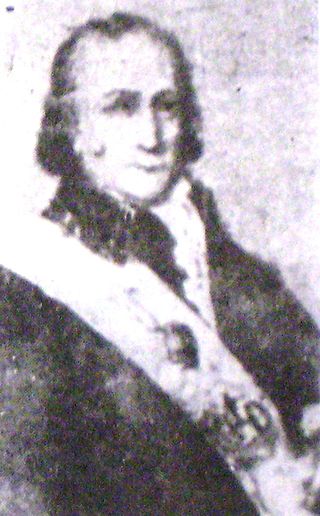 18
Francisco Antonio Maciel, was a Montevidean Criollo industrialist and philanthropist of the time of the Spanish colony. He was known as the "father of the poor."
18
Francisco Antonio Maciel, was a Montevidean Criollo industrialist and philanthropist of the time of the Spanish colony. He was known as the "father of the poor."
Franklin D. Roosevelt
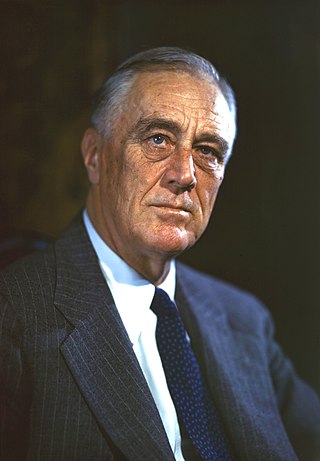 18
Franklin Delano Roosevelt, commonly known by his initials FDR, was an American statesman and politician who served as the 32nd president of the United States from 1933 until his death in 1945. He was...
18
Franklin Delano Roosevelt, commonly known by his initials FDR, was an American statesman and politician who served as the 32nd president of the United States from 1933 until his death in 1945. He was...
Dámaso Antonio Larrañaga
 17
Dámaso Antonio Larrañaga was a Uruguayan priest, naturalist and botanist.
17
Dámaso Antonio Larrañaga was a Uruguayan priest, naturalist and botanist.
Javier de Viana (author)
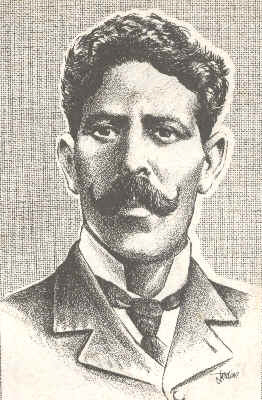 17
Javier de Viana was a Uruguayan writer.
17
Javier de Viana was a Uruguayan writer.
Elías Regules
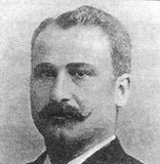 16
Elías Regules (1861–1929) was a Uruguayan physician, teacher, writer and politician.
16
Elías Regules (1861–1929) was a Uruguayan physician, teacher, writer and politician.
Carlos Reyles
 15
Carlos Claudio Reyles Gutiérrez fue un narrador y ensayista uruguayo.
15
Carlos Claudio Reyles Gutiérrez fue un narrador y ensayista uruguayo.
Bartolomé Hidalgo
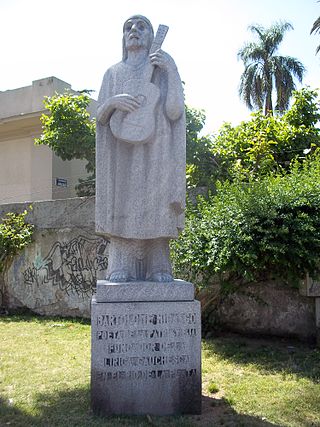 15
Bartolomé José Hidalgo was a Uruguayan writer and poet.
15
Bartolomé José Hidalgo was a Uruguayan writer and poet.
Eduardo Fabini
 15
Eduardo Fabini was a Uruguayan composer and musician.
15
Eduardo Fabini was a Uruguayan composer and musician.
Simón Bolívar
 14
Simón José Antonio de la Santísima Trinidad Bolívar Palacios Ponte y Blanco was a Venezuelan military and political leader who led what are currently the countries of Colombia, Venezuela, Ecuador,...
14
Simón José Antonio de la Santísima Trinidad Bolívar Palacios Ponte y Blanco was a Venezuelan military and political leader who led what are currently the countries of Colombia, Venezuela, Ecuador,...
Paul Harris (Rotary)
 14
Paul Percy Harris was a Chicago, Illinois, attorney. He founded the club that became the humanitarian organisation Rotary International in 1905.
14
Paul Percy Harris was a Chicago, Illinois, attorney. He founded the club that became the humanitarian organisation Rotary International in 1905.
Manuel Freire
 13
Manuel Freire is a Portuguese influential left-wing singer and composer, although he also works as a computer technician. Freire was born in Vagos, Aveiro District on 25 April 1942.
13
Manuel Freire is a Portuguese influential left-wing singer and composer, although he also works as a computer technician. Freire was born in Vagos, Aveiro District on 25 April 1942.
Luis Batlle Berres
 12
Luis Conrado Batlle y Berres was a Uruguayan political figure.
12
Luis Conrado Batlle y Berres was a Uruguayan political figure.
Manuel Calleros
 12
Manuel Francisco Calleros 1763-1841, hijo de D. Roberto Calleros y Da Isabel de la Cruz Texera
El 14 de junio de 1825 en la ciudad de la Florida, se constituyó presidente del Primer Gobierno Patrio...
12
Manuel Francisco Calleros 1763-1841, hijo de D. Roberto Calleros y Da Isabel de la Cruz Texera
El 14 de junio de 1825 en la ciudad de la Florida, se constituyó presidente del Primer Gobierno Patrio...
Carlos Roxlo
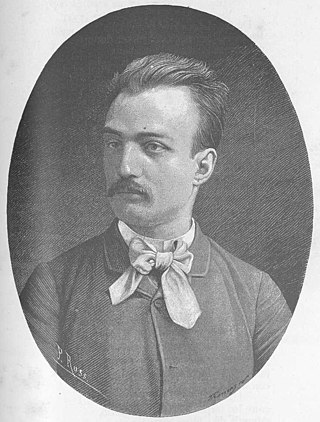 12
Carlos Félix Roxlo y Miralles fue un poeta, periodista y político uruguayo.
12
Carlos Félix Roxlo y Miralles fue un poeta, periodista y político uruguayo.
Delmira Agustini
 12
Delmira Agustini was an Uruguayan poet of the early 20th century.
12
Delmira Agustini was an Uruguayan poet of the early 20th century.
Giuseppe Garibaldi
 11
Giuseppe Maria Garibaldi was an Italian general, patriot, revolutionary and republican. He contributed to Italian unification (Risorgimento) and the creation of the Kingdom of Italy. He is considered...
11
Giuseppe Maria Garibaldi was an Italian general, patriot, revolutionary and republican. He contributed to Italian unification (Risorgimento) and the creation of the Kingdom of Italy. He is considered...
Emilio Frugoni
 11
Emilio Frugoni Queirolo was a Uruguayan socialist politician, lawyer, poet, essayist, and journalist. He founded the Socialist Party of Uruguay (PS) in 1910 and was its first general secretary, as...
11
Emilio Frugoni Queirolo was a Uruguayan socialist politician, lawyer, poet, essayist, and journalist. He founded the Socialist Party of Uruguay (PS) in 1910 and was its first general secretary, as...
Saint Lucy
 11
Lucia of Syracuse (283–304), also called Saint Lucia was a Roman Christian martyr who died during the Diocletianic Persecution. She is venerated as a saint in Catholic, Anglican, Lutheran, and...
11
Lucia of Syracuse (283–304), also called Saint Lucia was a Roman Christian martyr who died during the Diocletianic Persecution. She is venerated as a saint in Catholic, Anglican, Lutheran, and...
Alfredo Zitarrosa
 11
Alfredo Zitarrosa was a Uruguayan singer-songwriter, poet and journalist. He specialized in Uruguayan and Argentinean folk genres such as zamba and milonga, and he became a chief figure in the nueva...
11
Alfredo Zitarrosa was a Uruguayan singer-songwriter, poet and journalist. He specialized in Uruguayan and Argentinean folk genres such as zamba and milonga, and he became a chief figure in the nueva...
Jesus
 10
Jesus, also referred to as Jesus Christ, Jesus of Nazareth, and many other names and titles, was a first-century Jewish preacher and religious leader. He is the central figure of Christianity, the...
10
Jesus, also referred to as Jesus Christ, Jesus of Nazareth, and many other names and titles, was a first-century Jewish preacher and religious leader. He is the central figure of Christianity, the...
Pedro Figari
 10
Pedro Figari was a Uruguayan painter, lawyer, writer, and politician. Although he did not begin the practice until his later years, he is best known as an early modernist painter who emphasized...
10
Pedro Figari was a Uruguayan painter, lawyer, writer, and politician. Although he did not begin the practice until his later years, he is best known as an early modernist painter who emphasized...
Horacio Quiroga
 10
Horacio Silvestre Quiroga Forteza was a Uruguayan playwright, poet, and short story writer.
10
Horacio Silvestre Quiroga Forteza was a Uruguayan playwright, poet, and short story writer.
George Washington
 10
George Washington was an American Founding Father, military officer, and politician who served as the first president of the United States from 1789 to 1797. Appointed by the Second Continental...
10
George Washington was an American Founding Father, military officer, and politician who served as the first president of the United States from 1789 to 1797. Appointed by the Second Continental...
Eudoro Melo
 10
Eudoro Melo (1889–1975) was an Uruguayan poet, politician, and journalist.
10
Eudoro Melo (1889–1975) was an Uruguayan poet, politician, and journalist.
Alberto Gallinal Heber
 10
Alberto Gallinal Heber fue un abogado, político, filántropo y productor rural de Uruguay.
10
Alberto Gallinal Heber fue un abogado, político, filántropo y productor rural de Uruguay.
Louis IX of France
 10
Louis IX, commonly revered as Saint Louis, was King of France from 1226 until his death in 1270. He is widely recognized as the most distinguished of the Direct Capetians. Following the death of his...
10
Louis IX, commonly revered as Saint Louis, was King of France from 1226 until his death in 1270. He is widely recognized as the most distinguished of the Direct Capetians. Following the death of his...
José Eugenio Ellauri
 9
Jose Eugenio Ellauri y Obes (1834–1894) was a Uruguayan political figure.
9
Jose Eugenio Ellauri y Obes (1834–1894) was a Uruguayan political figure.
Ferdinand Magellan
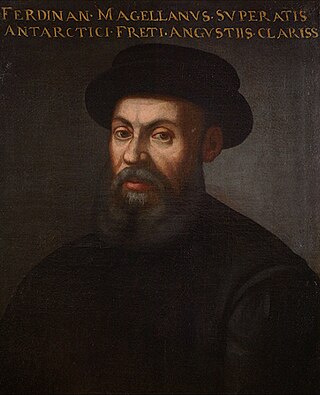 9
Ferdinand Magellan was a Portuguese explorer best known for having planned and led the 1519 Spanish expedition to the East Indies across the Pacific Ocean to open a maritime trade route, during which...
9
Ferdinand Magellan was a Portuguese explorer best known for having planned and led the 1519 Spanish expedition to the East Indies across the Pacific Ocean to open a maritime trade route, during which...
José Belloni
 9
José Belloni was a Uruguayan sculptor of the Realist school.
9
José Belloni was a Uruguayan sculptor of the Realist school.
Miguel Barreiro
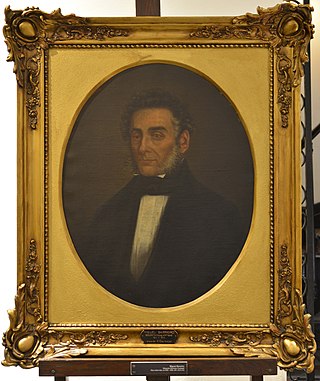 9
Miguel Manuel Francisco Barreiro fue un patriota y político uruguayo.
9
Miguel Manuel Francisco Barreiro fue un patriota y político uruguayo.
Manuel Lavalleja
 9
El capitán Juan Joaquín Manuel Eustaquio Lavalleja y de la Torre fue un militar uruguayo, soldado y oficial del general Gervasio Artigas.
«Servidor de la Independencia», fue uno de los Treinta y Tres...
9
El capitán Juan Joaquín Manuel Eustaquio Lavalleja y de la Torre fue un militar uruguayo, soldado y oficial del general Gervasio Artigas.
«Servidor de la Independencia», fue uno de los Treinta y Tres...
Santiago Gadea
 9
Santiago Cristóbal Gadea Salado fue un militar de la independencia de Uruguay y uno de los Treinta y Tres Orientales. Hijo de Juan Antonio Gadea y Florencia Salado, pertenecía a una conocida familia...
9
Santiago Cristóbal Gadea Salado fue un militar de la independencia de Uruguay y uno de los Treinta y Tres Orientales. Hijo de Juan Antonio Gadea y Florencia Salado, pertenecía a una conocida familia...
Gabriela Mistral
 9
Lucila Godoy Alcayaga, known by her pseudonym Gabriela Mistral, was a Chilean poet-diplomat, educator, and Catholic. She was a member of the Secular Franciscan Order or Third Franciscan order. She...
9
Lucila Godoy Alcayaga, known by her pseudonym Gabriela Mistral, was a Chilean poet-diplomat, educator, and Catholic. She was a member of the Secular Franciscan Order or Third Franciscan order. She...
Mary, mother of Jesus
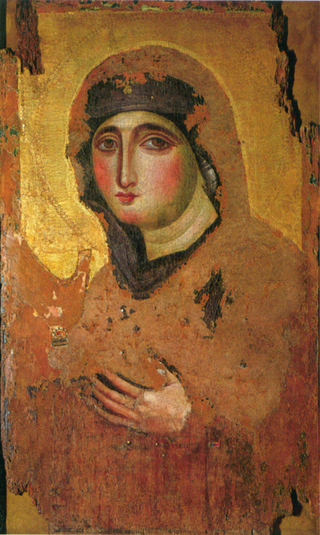 8
Mary was a first-century Jewish woman of Nazareth, the wife of Joseph and the mother of Jesus. She is a central figure of Christianity, venerated under various titles such as virgin or queen, many of...
8
Mary was a first-century Jewish woman of Nazareth, the wife of Joseph and the mother of Jesus. She is a central figure of Christianity, venerated under various titles such as virgin or queen, many of...
Alejandro Gallinal
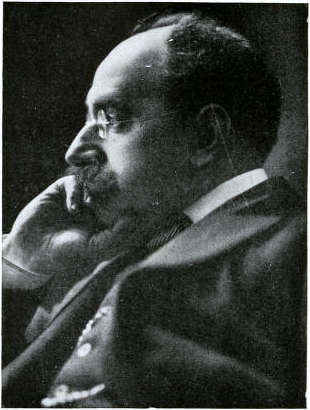 8
Alejandro Claudio Gallinal Conlazo fue un médico, estanciero y político uruguayo.
8
Alejandro Claudio Gallinal Conlazo fue un médico, estanciero y político uruguayo.
Juan Rosas
 8
Juan Rosas fue un baqueano uruguayo que luchó contra la dominación de su patria por el Imperio del Brasil y en las guerras civiles de su país.
8
Juan Rosas fue un baqueano uruguayo que luchó contra la dominación de su patria por el Imperio del Brasil y en las guerras civiles de su país.
Pablo Zufriátegui
 8
Pablo Zufriátegui Mas de Ayala fue un militar uruguayo que participó en las guerras de independencia de la Argentina y Uruguay y contra el Imperio del Brasil.
8
Pablo Zufriátegui Mas de Ayala fue un militar uruguayo que participó en las guerras de independencia de la Argentina y Uruguay y contra el Imperio del Brasil.
Fernando Otorgués
 8
Fernando Otorgués fue un militar oriental de las guerras de la independencia. Jefe militar de la primera época del Uruguay, fue objeto de fuertes controversias debido a su escasa adaptabilidad a...
8
Fernando Otorgués fue un militar oriental de las guerras de la independencia. Jefe militar de la primera época del Uruguay, fue objeto de fuertes controversias debido a su escasa adaptabilidad a...
Juan Francisco Larrobla
 8
Juan Francisco de Larrobla Pereyra was a Uruguayan Roman Catholic cleric, theologian and patriot.
8
Juan Francisco de Larrobla Pereyra was a Uruguayan Roman Catholic cleric, theologian and patriot.
Joaquín Suárez
 8
Joaquín Luis Miguel Suárez de Rondelo was a Uruguayan political figure.
8
Joaquín Luis Miguel Suárez de Rondelo was a Uruguayan political figure.
María Micaela Guyunusa
 8
María Micaela Guyunusa was a Minuán-Charrúa native from present day Uruguay of Güenoa descent.
8
María Micaela Guyunusa was a Minuán-Charrúa native from present day Uruguay of Güenoa descent.
Juan Antonio de Artigas
 7
Juan Antonio de Artigas y Ordovás era un militar, colonizador, hacendado y funcionario español que combatió en el bando borbónico de la guerra de sucesión y cuando pasó a la sudamericana gobernación...
7
Juan Antonio de Artigas y Ordovás era un militar, colonizador, hacendado y funcionario español que combatió en el bando borbónico de la guerra de sucesión y cuando pasó a la sudamericana gobernación...
Yamandú Rodríguez
 7
Yamandú Rodríguez fue un poeta, dramaturgo y narrador uruguayo.
7
Yamandú Rodríguez fue un poeta, dramaturgo y narrador uruguayo.
Benito Nardone
 7
Benito Nardone Cetrulo was a Uruguayan journalist and political figure.
7
Benito Nardone Cetrulo was a Uruguayan journalist and political figure.
Peter Campbell (naval officer)
 7
Peter Campbell, also known in Spanish as Pedro Campbell,, was an Irish naval officer who founded the Uruguayan Navy.
7
Peter Campbell, also known in Spanish as Pedro Campbell,, was an Irish naval officer who founded the Uruguayan Navy.
Julio Herrera y Reissig
 7
Julio Herrera y Reissig was a Uruguayan poet, playwright and essayist, who began his career during the late Romanticist period and later became an early proponent of Modernism.
7
Julio Herrera y Reissig was a Uruguayan poet, playwright and essayist, who began his career during the late Romanticist period and later became an early proponent of Modernism.
José Hernández (writer)
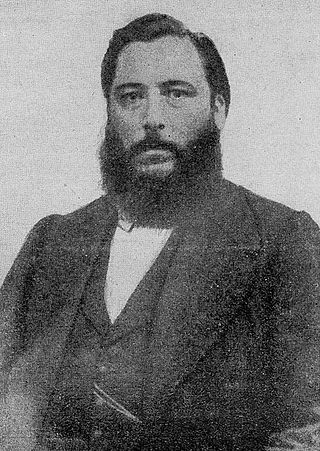 7
José Hernández was an Argentine journalist, poet, and politician best known as the author of the epic poem Martín Fierro. In his tribute, his birthday is celebrated as a national argentinian holiday,...
7
José Hernández was an Argentine journalist, poet, and politician best known as the author of the epic poem Martín Fierro. In his tribute, his birthday is celebrated as a national argentinian holiday,...
Washington Beltrán
 7
Washington Beltrán Mullin was a Uruguayan political figure.
7
Washington Beltrán Mullin was a Uruguayan political figure.
Francisco Canaro
 7
Francisco Canaro was a Uruguayan violinist and tango orchestra leader.
7
Francisco Canaro was a Uruguayan violinist and tango orchestra leader.
Silvestre Blanco
 7
Silvestre Eulogio Blanco fue un militar y político, miembro del Congreso que sancionó la constitución argentina de 1826, cuando el actual Uruguay formaba aún parte de la República Argentina, y...
7
Silvestre Eulogio Blanco fue un militar y político, miembro del Congreso que sancionó la constitución argentina de 1826, cuando el actual Uruguay formaba aún parte de la República Argentina, y...
José Martí
 7
José Julián Martí Pérez was a Cuban nationalist, poet, philosopher, essayist, journalist, translator, professor, and publisher, who is considered a Cuban national hero because of his role in the...
7
José Julián Martí Pérez was a Cuban nationalist, poet, philosopher, essayist, journalist, translator, professor, and publisher, who is considered a Cuban national hero because of his role in the...
Venancio Flores
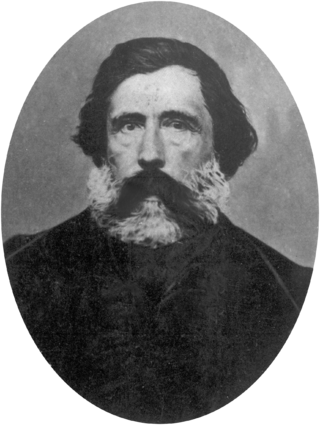 7
Venancio Flores Barrios was a Uruguayan political leader and general who served as President of Uruguay from 1854 to 1855 (interim) and from 1865 to 1868.
7
Venancio Flores Barrios was a Uruguayan political leader and general who served as President of Uruguay from 1854 to 1855 (interim) and from 1865 to 1868.
Antonio Lussich
 7
Antonio Dionisio Lussich was an Uruguayan sailor, arboricultorist and writer.
7
Antonio Dionisio Lussich was an Uruguayan sailor, arboricultorist and writer.
Rose of Lima
 7
Rose of Lima, TOSD was a member of the Third Order of Saint Dominic in Lima, Peru, who became known for both her life of severe penance and her care of the poverty stricken of the city through her...
7
Rose of Lima, TOSD was a member of the Third Order of Saint Dominic in Lima, Peru, who became known for both her life of severe penance and her care of the poverty stricken of the city through her...
Eugenio Garzón
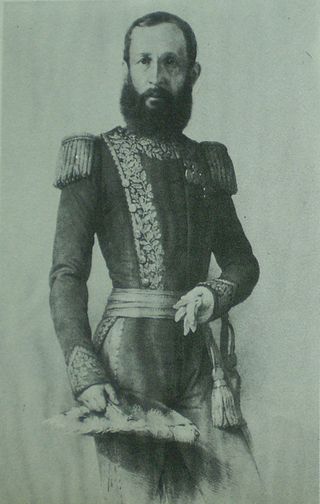 6
Eugenio Garzón fue un militar uruguayo que participó en la guerra de la independencia y en las guerras civiles de la Argentina y el Uruguay.
6
Eugenio Garzón fue un militar uruguayo que participó en la guerra de la independencia y en las guerras civiles de la Argentina y el Uruguay.
Julián Laguna
 6
Julián Laguna y Delgado-Melilla fue un militar uruguayo, que participó en la Revolución oriental y en la Guerra del Brasil, así como en las guerras civiles de su país y contra los indígenas charrúas....
6
Julián Laguna y Delgado-Melilla fue un militar uruguayo, que participó en la Revolución oriental y en la Guerra del Brasil, así como en las guerras civiles de su país y contra los indígenas charrúas....
Tomás Gomensoro Albín
 6
Tomás José Gomensoro Albín was a Uruguayan political figure.
6
Tomás José Gomensoro Albín was a Uruguayan political figure.
Francisco de los Santos
 6
Francisco de la Plaza Cuéllar, en religión Francisco de los Santos fue un religioso, músico, escritor e historiador español, miembro de la Orden de San Jerónimo y electo obispo de Cortón en Nápoles.
6
Francisco de la Plaza Cuéllar, en religión Francisco de los Santos fue un religioso, músico, escritor e historiador español, miembro de la Orden de San Jerónimo y electo obispo de Cortón en Nápoles.
Julio Sosa
 6
Julio María Sosa Venturini, usually referred to simply as Julio Sosa or El Varón del Tango, was a Uruguayan tango singer.
6
Julio María Sosa Venturini, usually referred to simply as Julio Sosa or El Varón del Tango, was a Uruguayan tango singer.
César Mayo Gutiérrez
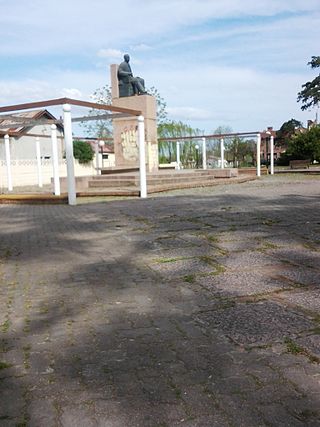 6
César Mayo Gutiérrez (1892-1951) fue un periodista y político uruguayo perteneciente al Partido Colorado. Fue diputado, senador y ministro de Industria.
6
César Mayo Gutiérrez (1892-1951) fue un periodista y político uruguayo perteneciente al Partido Colorado. Fue diputado, senador y ministro de Industria.
Carlos Vaz Ferreira
 6
Carlos Vaz Ferreira was a Uruguayan philosopher, lawyer, writer, and academic. Influenced by John Stuart Mill and Herbert Spencer, he is notable for introducing liberal, pluralistic political values...
6
Carlos Vaz Ferreira was a Uruguayan philosopher, lawyer, writer, and academic. Influenced by John Stuart Mill and Herbert Spencer, he is notable for introducing liberal, pluralistic political values...
Juan Spikerman
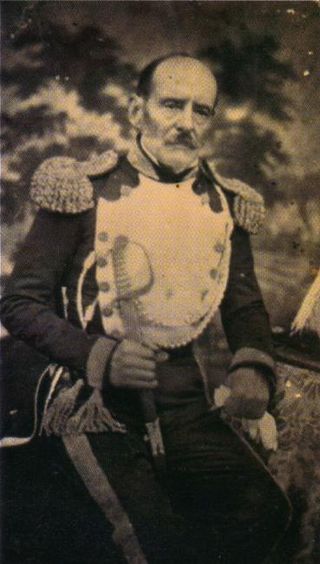 6
Juan Spikerman fue un militar y político uruguayo de las guerras de independencia del siglo XIX.
6
Juan Spikerman fue un militar y político uruguayo de las guerras de independencia del siglo XIX.
Atanasio Lapido
 6
Atanasio Lapido, militar y político uruguayo, que participó en la Revolución Oriental, en las guerras civiles argentinas y en la Guerra Grande en su país.
6
Atanasio Lapido, militar y político uruguayo, que participó en la Revolución Oriental, en las guerras civiles argentinas y en la Guerra Grande en su país.
Francis of Assisi
 6
Giovanni di Pietro di Bernardone, known as Francis of Assisi, was an Italian mystic, poet and Catholic friar who founded the religious order of the Franciscans. He was inspired to lead a Christian...
6
Giovanni di Pietro di Bernardone, known as Francis of Assisi, was an Italian mystic, poet and Catholic friar who founded the religious order of the Franciscans. He was inspired to lead a Christian...
Federico García Lorca
 6
Federico del Sagrado Corazón de Jesús García Lorca, known as Federico García Lorca, was a Spanish poet, playwright, and theatre director. García Lorca achieved international recognition as an...
6
Federico del Sagrado Corazón de Jesús García Lorca, known as Federico García Lorca, was a Spanish poet, playwright, and theatre director. García Lorca achieved international recognition as an...
Eladio Dieste
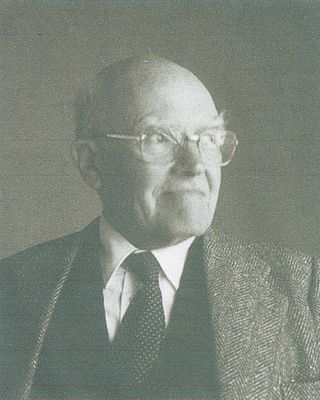 6
Eladio Dieste was a Uruguayan engineer who made his reputation by building a range of structures from grain silos, factory sheds, markets and churches, most of them in Uruguay and all of exceptional...
6
Eladio Dieste was a Uruguayan engineer who made his reputation by building a range of structures from grain silos, factory sheds, markets and churches, most of them in Uruguay and all of exceptional...
Serafín J. García
 6
Serafín José García Correa fue un escritor y poeta uruguayo.
6
Serafín José García Correa fue un escritor y poeta uruguayo.
Pablo Neruda
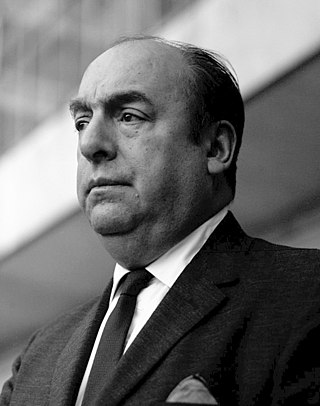 6
Pablo Neruda was a Chilean poet-diplomat and politician who won the 1971 Nobel Prize in Literature. Neruda became known as a poet when he was 13 years old and wrote in a variety of styles, including...
6
Pablo Neruda was a Chilean poet-diplomat and politician who won the 1971 Nobel Prize in Literature. Neruda became known as a poet when he was 13 years old and wrote in a variety of styles, including...
Rita of Cascia
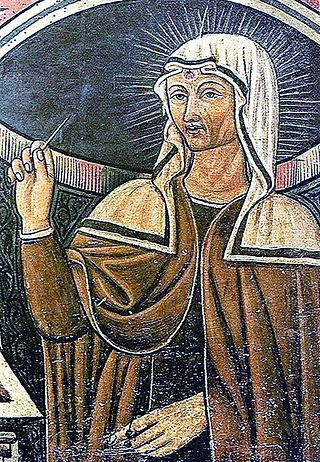 6
Rita of Cascia, OSA, was an Italian widow and Augustinian nun. After Rita's husband died, she joined an Augustinian community of religious sisters, where she was known both for practicing...
6
Rita of Cascia, OSA, was an Italian widow and Augustinian nun. After Rita's husband died, she joined an Augustinian community of religious sisters, where she was known both for practicing...
Eduardo Acevedo Díaz
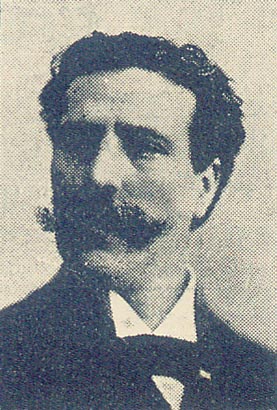 5
Eduardo Acevedo Díaz, was an Uruguayan writer, politician and journalist.
5
Eduardo Acevedo Díaz, was an Uruguayan writer, politician and journalist.
Ignacio Oribe
 5
Ignacio Abdón del Corazón de Jesús Oribe y Viana fue un militar uruguayo, que participó en las guerras de independencia y civiles de su país en la primera mitad del siglo XIX. Era hermano menor del...
5
Ignacio Abdón del Corazón de Jesús Oribe y Viana fue un militar uruguayo, que participó en las guerras de independencia y civiles de su país en la primera mitad del siglo XIX. Era hermano menor del...
Carlos Anaya
 5
Carlos Anaya Lopez Camelo was an Uruguayan politician and historian from Buenos Aires, who served as interim President of the Republic between 1834 and 1835, in his capacity as President of the...
5
Carlos Anaya Lopez Camelo was an Uruguayan politician and historian from Buenos Aires, who served as interim President of the Republic between 1834 and 1835, in his capacity as President of the...
Juan Diego
 5
Juan Diego Cuauhtlatoatzin, also known simply as Juan Diego, was a Chichimec peasant and Marian visionary. He is said to have been granted apparitions of Our Lady of Guadalupe on four occasions in...
5
Juan Diego Cuauhtlatoatzin, also known simply as Juan Diego, was a Chichimec peasant and Marian visionary. He is said to have been granted apparitions of Our Lady of Guadalupe on four occasions in...
Isidoro de María
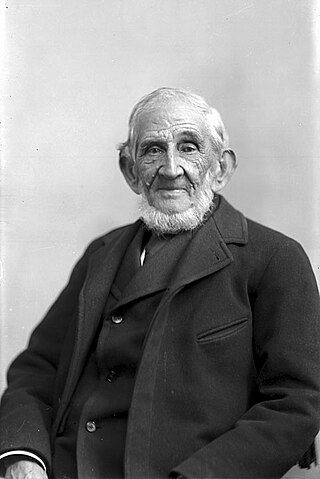 5
Isidoro de María (1815–1906) was a Uruguayan writer, historian, journalist, politician and diplomat.
5
Isidoro de María (1815–1906) was a Uruguayan writer, historian, journalist, politician and diplomat.
Francisco Soca
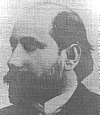 5
Vicente Francisco Soca Barreto fue un médico y político uruguayo.
5
Vicente Francisco Soca Barreto fue un médico y político uruguayo.
Timoteo Aparicio
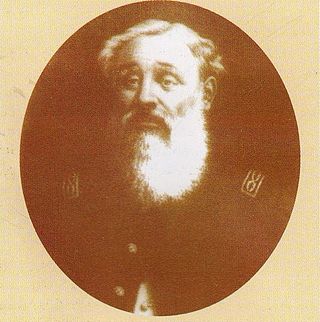 5
Timoteo Aparicio (1814-1882) was a Uruguayan politician and military figure that was a member of the National Party who was most notable for spearheading the Revolution of the Lances.
5
Timoteo Aparicio (1814-1882) was a Uruguayan politician and military figure that was a member of the National Party who was most notable for spearheading the Revolution of the Lances.
John Bosco
 5
John Melchior Bosco, SDB, popularly known as Don Bosco, was an Italian Catholic priest, educator and writer of the 19th century. While working in Turin, where the population suffered many of the ill...
5
John Melchior Bosco, SDB, popularly known as Don Bosco, was an Italian Catholic priest, educator and writer of the 19th century. While working in Turin, where the population suffered many of the ill...
Eduardo Víctor Haedo
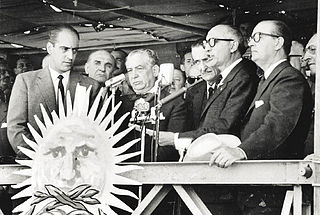 5
Eduardo Víctor Haedo was a Uruguayan political figure.
5
Eduardo Víctor Haedo was a Uruguayan political figure.
Rafael Barradas
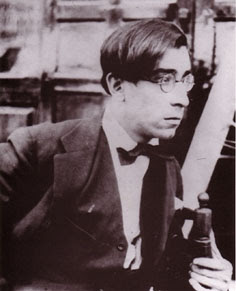 5
Rafael Pérez Giménez Barradas, was an Uruguayan modernist painter and graphic artist who worked in Spain.
5
Rafael Pérez Giménez Barradas, was an Uruguayan modernist painter and graphic artist who worked in Spain.
Miguel Febres Cordero
 5
Francisco Luis Febres-Cordero y Muñoz, known as Miguel Febres Cordero and Brother Miguel, was an Ecuadorian Roman Catholic religious brother. He became a professed member of the Brothers of the...
5
Francisco Luis Febres-Cordero y Muñoz, known as Miguel Febres Cordero and Brother Miguel, was an Ecuadorian Roman Catholic religious brother. He became a professed member of the Brothers of the...
Lázaro Gadea
 5
Lázaro Gadea fue un fraile franciscano rioplatense, de destacada participación política en la Argentina y el Uruguay durante la primera mitad del siglo XIX.
5
Lázaro Gadea fue un fraile franciscano rioplatense, de destacada participación política en la Argentina y el Uruguay durante la primera mitad del siglo XIX.
Obdulio Varela
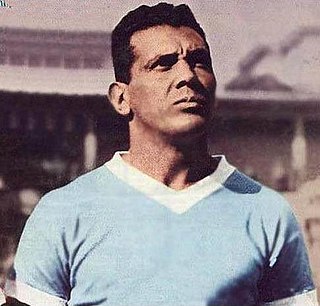 5
Obdulio Jacinto Muiños Varela was a Uruguayan football player. He was the captain of the Uruguay national team that won the 1950 World Cup after beating Brazil in the decisive final round match...
5
Obdulio Jacinto Muiños Varela was a Uruguayan football player. He was the captain of the Uruguay national team that won the 1950 World Cup after beating Brazil in the decisive final round match...
Andrés Guazurary
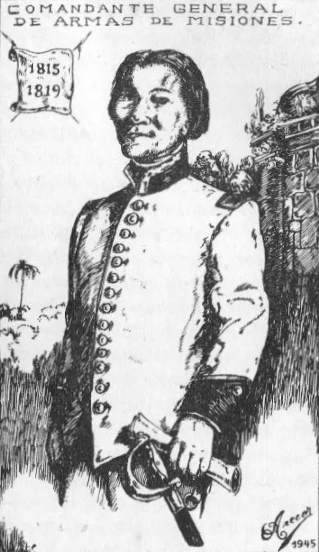 5
Andrés Guaçurary or Andrés Guazurarí, popularly known as Andresito was a caudillo of the province of Misiones, present-day Argentina, being governor of said province between 1811 and 1822. He was one...
5
Andrés Guaçurary or Andrés Guazurarí, popularly known as Andresito was a caudillo of the province of Misiones, present-day Argentina, being governor of said province between 1811 and 1822. He was one...
Manuel Francisco Artigas
 5
Manuel Francisco Artigas fue el hermano del caudillo José Gervasio Artigas y uno de los jefes de la Banda Oriental que permanecieron leales a la causa artiguista hasta el final.
5
Manuel Francisco Artigas fue el hermano del caudillo José Gervasio Artigas y uno de los jefes de la Banda Oriental que permanecieron leales a la causa artiguista hasta el final.
Juan José Morosoli
 5
Juan José Morosoli was a Uruguayan writer. His masterpiece is Perico, a collection of short stories for children, which included "Arenero" and "La Querencia Olvidada" in 1947.
5
Juan José Morosoli was a Uruguayan writer. His masterpiece is Perico, a collection of short stories for children, which included "Arenero" and "La Querencia Olvidada" in 1947.
María Eugenia Vaz Ferreira
 5
Maria Eugenia Vaz Ferreira (1875–1924) was an Uruguayan teacher and poet. She was the younger sister of philosopher Carlos Vaz Ferreira and a contemporary of Delmira Agustini and Julio Herrera y...
5
Maria Eugenia Vaz Ferreira (1875–1924) was an Uruguayan teacher and poet. She was the younger sister of philosopher Carlos Vaz Ferreira and a contemporary of Delmira Agustini and Julio Herrera y...
Carlos María Ramírez
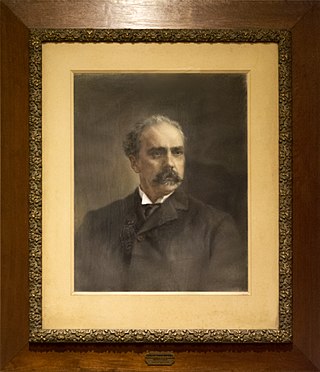 4
Carlos María Ramírez (1847–1898) was a Uruguayan journalist, essayist and politician. He was Minister of Finance from 1891 to 1892.
4
Carlos María Ramírez (1847–1898) was a Uruguayan journalist, essayist and politician. He was Minister of Finance from 1891 to 1892.
Américo Ricaldoni Saroldi
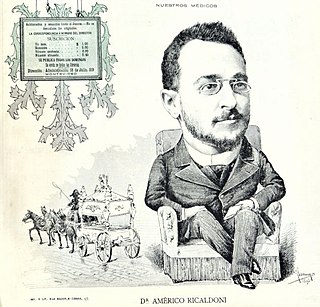 4
José Domicio Américo Ricaldoni Saroldi fue un médico uruguayo.
4
José Domicio Américo Ricaldoni Saroldi fue un médico uruguayo.
Lorenzo Batlle Pacheco
 4
Lorenzo Batlle Pacheco was a Uruguayan political figure and journalist.
4
Lorenzo Batlle Pacheco was a Uruguayan political figure and journalist.
María Stagnero de Munar
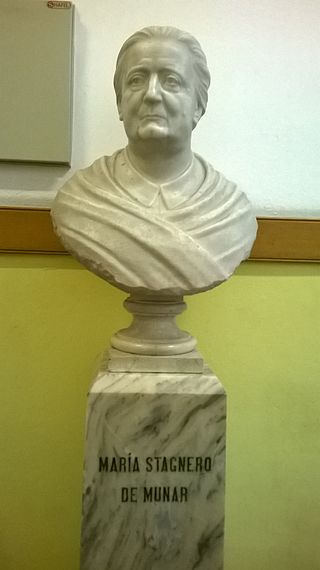 4
María Stagnero de Munar (1856–1922) was a liberal Uruguayan teacher and feminist. She was a pioneering player in the reform of the Uruguayan school system in the 1880s, establishing the country's...
4
María Stagnero de Munar (1856–1922) was a liberal Uruguayan teacher and feminist. She was a pioneering player in the reform of the Uruguayan school system in the 1880s, establishing the country's...
Tiburcio Gómez
 4
Tiburcio Gómez fue un patriota Argentino que colaboró formando parte de los llamados Treinta y Tres Orientales que inició el levantamiento en la Banda Oriental contra la ocupación brasileña.
4
Tiburcio Gómez fue un patriota Argentino que colaboró formando parte de los llamados Treinta y Tres Orientales que inició el levantamiento en la Banda Oriental contra la ocupación brasileña.
Antonio Machado
 4
Antonio Cipriano José María y Francisco de Santa Ana Machado y Ruiz, known as Antonio Machado, was a Spanish poet and one of the leading figures of the Spanish literary movement known as the...
4
Antonio Cipriano José María y Francisco de Santa Ana Machado y Ruiz, known as Antonio Machado, was a Spanish poet and one of the leading figures of the Spanish literary movement known as the...
Gobierno de Bernardo Berro
 4
El gobierno de Bernardo Berro comenzó el 1.° de marzo de 1860, fecha en la que asumió como presidente de la República Oriental del Uruguay luego de haber ganado en la elección presidencial ante la...
4
El gobierno de Bernardo Berro comenzó el 1.° de marzo de 1860, fecha en la que asumió como presidente de la República Oriental del Uruguay luego de haber ganado en la elección presidencial ante la...
Miguel Martínez (actor)
 4
Miguel Martínez, is a Mexican actor and singer.
4
Miguel Martínez, is a Mexican actor and singer.
Julio Herrera y Obes
 4
Julio Herrera y Obes, was a Uruguayan political figure.
4
Julio Herrera y Obes, was a Uruguayan political figure.
Ernesto Herrera (playwright)
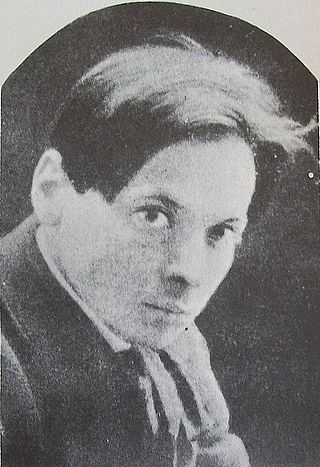 4
Ernesto Herrera (1889–1917) was a Uruguayan playwright, short story writer and journalist.
4
Ernesto Herrera (1889–1917) was a Uruguayan playwright, short story writer and journalist.
Javier Barrios Amorín
 4
Javier Barrios Amorín fue un político uruguayo, perteneciente al Partido Nacional.
4
Javier Barrios Amorín fue un político uruguayo, perteneciente al Partido Nacional.
Máximo Tajes
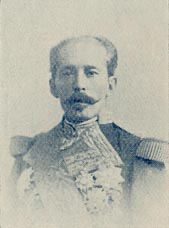 4
Máximo Tajes Caceres was a Uruguayan political figure.
4
Máximo Tajes Caceres was a Uruguayan political figure.
Benjamin Franklin
 4
Benjamin Franklin was an American polymath, a leading writer, scientist, inventor, statesman, diplomat, printer, publisher, and political philosopher. Among the most influential intellectuals of his...
4
Benjamin Franklin was an American polymath, a leading writer, scientist, inventor, statesman, diplomat, printer, publisher, and political philosopher. Among the most influential intellectuals of his...
Francisco Piria
 4
Fernando Juan Santiago Francisco María Piria de Grossi was a Uruguayan inventor, alchemist, writer, politician and businessman of Italian descent. He was notable for establishing the city and seaside...
4
Fernando Juan Santiago Francisco María Piria de Grossi was a Uruguayan inventor, alchemist, writer, politician and businessman of Italian descent. He was notable for establishing the city and seaside...
Miguel de Unamuno
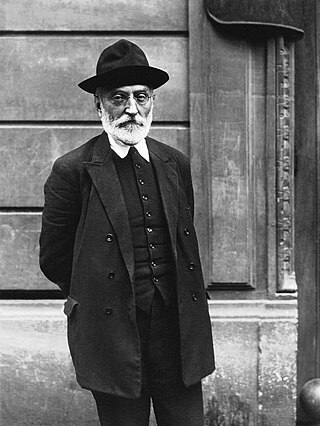 4
Miguel de Unamuno y Jugo was a Spanish essayist, novelist, poet, playwright, philosopher, professor of Greek and Classics, and later rector at the University of Salamanca.
4
Miguel de Unamuno y Jugo was a Spanish essayist, novelist, poet, playwright, philosopher, professor of Greek and Classics, and later rector at the University of Salamanca.
José Nasazzi
 4
José Nasazzi Yarza fue un futbolista uruguayo que lideró la Selección de Uruguay a las conquistas de las medallas de oro en los Juegos Olímpicos de 1924, Ámsterdam 1928 reconocidas por la FIFA como...
4
José Nasazzi Yarza fue un futbolista uruguayo que lideró la Selección de Uruguay a las conquistas de las medallas de oro en los Juegos Olímpicos de 1924, Ámsterdam 1928 reconocidas por la FIFA como...
Luis Eduardo Pérez
 4
Luis Eduardo Pérez was the first interim president of Uruguay.
4
Luis Eduardo Pérez was the first interim president of Uruguay.
Ignacio Barrios
 4
Ignacio Barrios was a Mexican painter mostly known for his absolute commitment to watercolour painting. He earned the reputation of one of the top watercolour painters in his country of origin and...
4
Ignacio Barrios was a Mexican painter mostly known for his absolute commitment to watercolour painting. He earned the reputation of one of the top watercolour painters in his country of origin and...
Saint Sebastian
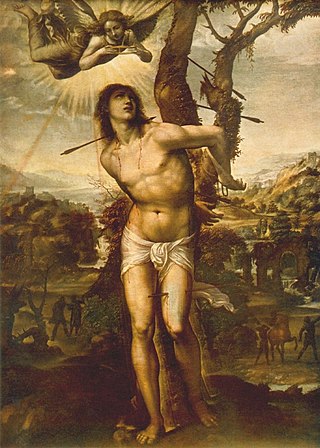 4
Sebastian was an early Christian saint and martyr. According to traditional belief, he was killed during the Diocletianic Persecution of Christians. He was initially tied to a post or tree and shot...
4
Sebastian was an early Christian saint and martyr. According to traditional belief, he was killed during the Diocletianic Persecution of Christians. He was initially tied to a post or tree and shot...
Lauro Ayestarán
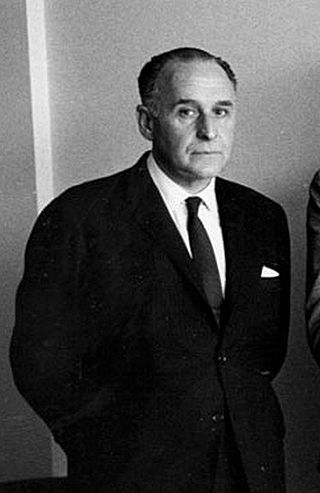 4
Lauro Ayestarán was an Uruguayan musicologist.
4
Lauro Ayestarán was an Uruguayan musicologist.
Felisberto Hernández
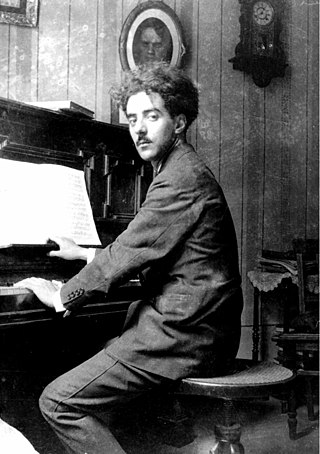 4
Felisberto Hernandez was an Uruguayan writer, composer, and pianist.
4
Felisberto Hernandez was an Uruguayan writer, composer, and pianist.
Manuel Artigas
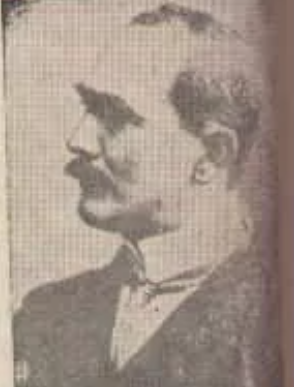 4
Manuel Artigas y Cuerva was a Filipino historian and journalist who prolifically wrote in the Spanish language.
4
Manuel Artigas y Cuerva was a Filipino historian and journalist who prolifically wrote in the Spanish language.
Setembrino Pereda
 4
Setembrino Ezequiel Pereda fue un historiador, escritor, periodista y político uruguayo que perteneció al partido Colorado.
4
Setembrino Ezequiel Pereda fue un historiador, escritor, periodista y político uruguayo que perteneció al partido Colorado.
Héctor Scarone
 4
Héctor Pedro Scarone Berreta was a Uruguayan footballer who played as inside forward. Known as "the Gardel of Football" and El Mago due to his extraordinary skills with the ball, Scarone was...
4
Héctor Pedro Scarone Berreta was a Uruguayan footballer who played as inside forward. Known as "the Gardel of Football" and El Mago due to his extraordinary skills with the ball, Scarone was...
Feliciano Viera
 4
Feliciano Alberto Viera Borges was a Uruguayan political figure.
4
Feliciano Alberto Viera Borges was a Uruguayan political figure.
Claudio Williman
 4
Claudio Wílliman Gonzalez was a Uruguayan political figure.
4
Claudio Wílliman Gonzalez was a Uruguayan political figure.
Gerardo Matos Rodríguez
 4
Gerardo Hernán Matos Rodríguez, also known as Becho, was a Uruguayan musician, composer and journalist.
4
Gerardo Hernán Matos Rodríguez, also known as Becho, was a Uruguayan musician, composer and journalist.
Luis Morquio
 4
Luis Morquio was a Uruguayan physician and professor. A medical condition, Morquio syndrome, is named in his honor.
4
Luis Morquio was a Uruguayan physician and professor. A medical condition, Morquio syndrome, is named in his honor.
Clemente Estable
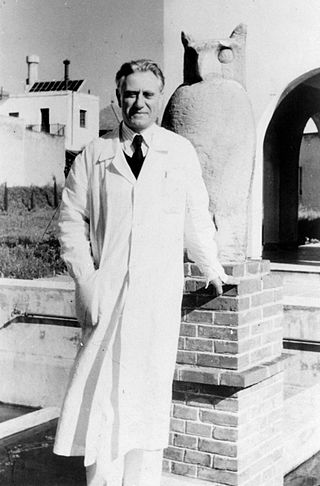 4
Clemente Estable was a Uruguayan biologist, researcher and professor. Best known for being a pioneer in cellular biology and neurobiology research.
4
Clemente Estable was a Uruguayan biologist, researcher and professor. Best known for being a pioneer in cellular biology and neurobiology research.
Néstor Feria
 4
Néstor Acosta Feria war ein uruguayischer Tangosänger, Gitarrist, Komponist und Schauspieler.
4
Néstor Acosta Feria war ein uruguayischer Tangosänger, Gitarrist, Komponist und Schauspieler.
Melvin Jones (Lions Club)
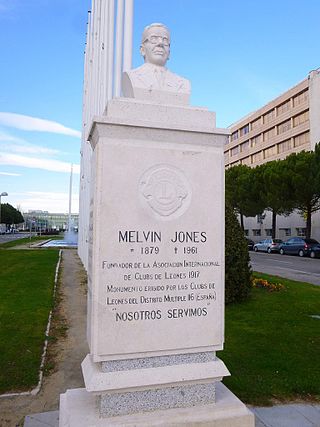 4
Melvin Jones was the founder and secretary-treasurer of Lions Clubs International.
4
Melvin Jones was the founder and secretary-treasurer of Lions Clubs International.
Santiago Chalar
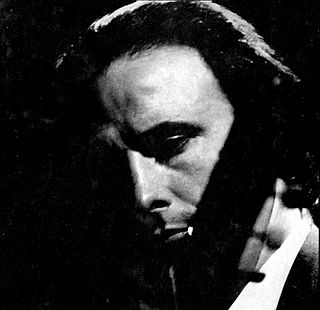 4
Carlos Alfredo Paravís Salaverry known as Santiago Chalar was a physician traumathologist, poet, songwriter, musician, guitarist and singer from Uruguay. He studied music and medicine. He used an...
4
Carlos Alfredo Paravís Salaverry known as Santiago Chalar was a physician traumathologist, poet, songwriter, musician, guitarist and singer from Uruguay. He studied music and medicine. He used an...
Francisco Espínola
 4
Francisco Espínola fue un escritor, periodista y docente uruguayo, perteneciente a la «Generación del centenario».
4
Francisco Espínola fue un escritor, periodista y docente uruguayo, perteneciente a la «Generación del centenario».
Carlos Roldán
 4
Carlos Roldán, cuyo nombre real era Carlos Belarmino Porcal, fue un cantor de tango uruguayo de reconocida trayectoria en su país y en Argentina.
4
Carlos Roldán, cuyo nombre real era Carlos Belarmino Porcal, fue un cantor de tango uruguayo de reconocida trayectoria en su país y en Argentina.
Jacinto Vera
 4
Blessed Jacinto Vera Durán was a Uruguayan Roman Catholic prelate who served as the first bishop of Montevideo. He was an active minister in Uruguay, although his efforts to renew the priesthood and...
4
Blessed Jacinto Vera Durán was a Uruguayan Roman Catholic prelate who served as the first bishop of Montevideo. He was an active minister in Uruguay, although his efforts to renew the priesthood and...
Basilio Muñoz
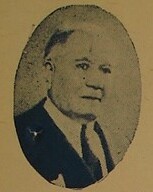 4
Basilio Muñoz fue un escribano público, militar y político uruguayo, perteneciente al Partido Nacional.
4
Basilio Muñoz fue un escribano público, militar y político uruguayo, perteneciente al Partido Nacional.
Saint Peter
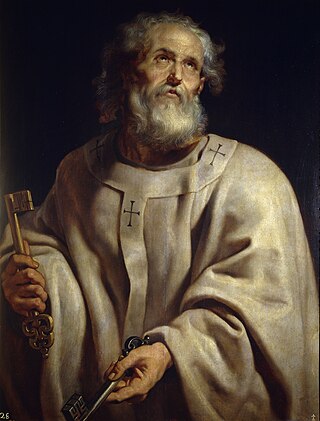 4
Saint Peter, also known as Peter the Apostle, Simon Peter, Simeon, Simon, or Cephas, was one of the Twelve Apostles of Jesus Christ and one of the first leaders of the early Christian Church. He...
4
Saint Peter, also known as Peter the Apostle, Simon Peter, Simeon, Simon, or Cephas, was one of the Twelve Apostles of Jesus Christ and one of the first leaders of the early Christian Church. He...
Rubén Darío
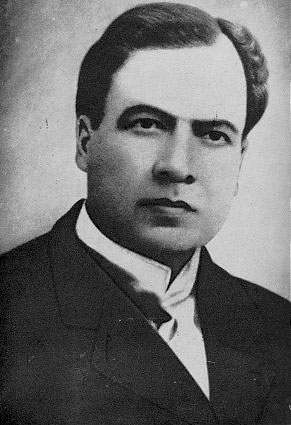 4
Félix Rubén García Sarmiento, known as Rubén Darío, was a Nicaraguan poet who initiated the Spanish-language literary movement known as modernismo (modernism) that flourished at the end of the 19th...
4
Félix Rubén García Sarmiento, known as Rubén Darío, was a Nicaraguan poet who initiated the Spanish-language literary movement known as modernismo (modernism) that flourished at the end of the 19th...
Alfonsina Storni
 4
Alfonsina Storni was a Swiss-Argentine poet and playwright of the modernist period.
4
Alfonsina Storni was a Swiss-Argentine poet and playwright of the modernist period.
Andrés Latorre
 3
Andrés Felipe Latorre fue un militar uruguayo que luchó en las guerras por la independencia, uno de los primeros capitanes de Artigas.
3
Andrés Felipe Latorre fue un militar uruguayo que luchó en las guerras por la independencia, uno de los primeros capitanes de Artigas.
Francisco Solano López
 3
Francisco Solano López Carrillo was a Paraguayan military officer, politician and statesman who served as President of Paraguay between 1862 and 1870, of which he served mostly during the Paraguayan...
3
Francisco Solano López Carrillo was a Paraguayan military officer, politician and statesman who served as President of Paraguay between 1862 and 1870, of which he served mostly during the Paraguayan...
Francisco José Debali
 3
Francisco José Debali, born Debály Ferenc József, was a Hungarian-born composer who emigrated to Uruguay in 1838. He authored the national anthem of Uruguay and, possibly, the tune to Paraguayos,...
3
Francisco José Debali, born Debály Ferenc József, was a Hungarian-born composer who emigrated to Uruguay in 1838. He authored the national anthem of Uruguay and, possibly, the tune to Paraguayos,...
Venancio Benavides
 3
Hacia 1811 Venancio Benavides era cabo de milicias de la guarnición de Santo Domingo Soriano, siendo nativo del lugar. El 28 de febrero, junto a Pedro José Viera, ante la inminencia del pasaje de...
3
Hacia 1811 Venancio Benavides era cabo de milicias de la guarnición de Santo Domingo Soriano, siendo nativo del lugar. El 28 de febrero, junto a Pedro José Viera, ante la inminencia del pasaje de...
Juan Benito Blanco
 3
Juan Benito Blanco Farías fue un político uruguayo, contemporáneo de las luchas por la independencia.
3
Juan Benito Blanco Farías fue un político uruguayo, contemporáneo de las luchas por la independencia.
Mariano Soler
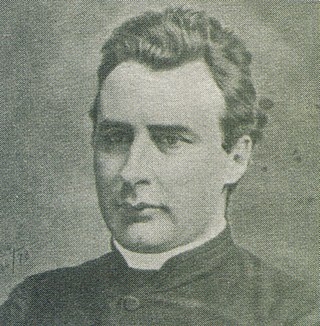 3
Monsignor Dr. Mariano Soler was a Uruguayan cleric and the first Roman Catholic archbishop of Montevideo, Uruguay.
3
Monsignor Dr. Mariano Soler was a Uruguayan cleric and the first Roman Catholic archbishop of Montevideo, Uruguay.
Agustín María Muñoz y Borbón, 1st Duke of Tarancón
 3
Don Agustín Maria Muñoz y de Borbon, 1st Duke of Tarancón, Grandee of Spain was the eldest son of Maria Christina, Queen mother and Regent of Spain, and of her morganatic second husband Agustín...
3
Don Agustín Maria Muñoz y de Borbon, 1st Duke of Tarancón, Grandee of Spain was the eldest son of Maria Christina, Queen mother and Regent of Spain, and of her morganatic second husband Agustín...
Eduardo Paz Aguirre
 3
Eduardo Paz Aguirre, político, abogado y periodista uruguayo perteneciente al Partido Colorado. Presidió la última sesión de la Cámara de Senadores antes del golpe de Estado del 27 de junio de 1973...
3
Eduardo Paz Aguirre, político, abogado y periodista uruguayo perteneciente al Partido Colorado. Presidió la última sesión de la Cámara de Senadores antes del golpe de Estado del 27 de junio de 1973...
Ignacio Núñez
 3
Ignacio Benito Núñez Conde fue un político e historiador argentino, que tuvo una actuación destacada en los veinte años posteriores a la Revolución de Mayo.
3
Ignacio Benito Núñez Conde fue un político e historiador argentino, que tuvo una actuación destacada en los veinte años posteriores a la Revolución de Mayo.
Pedro Berro
 3
Pedro Francisco Berro fue un empresario y político, constituyente de Uruguay en 1830. Fue el padre de Bernardo Prudencio Berro, quien fue presidente de la República Oriental del Uruguay.
3
Pedro Francisco Berro fue un empresario y político, constituyente de Uruguay en 1830. Fue el padre de Bernardo Prudencio Berro, quien fue presidente de la República Oriental del Uruguay.
Mario Cassinoni
 3
Mario Cassinoni fue un médico y profesor uruguayo que ocupó el cargo de Rector de la Universidad de la República de Uruguay entre 1956 y 1964. Fue durante su rectorado que se aprobó la Carta Orgánica...
3
Mario Cassinoni fue un médico y profesor uruguayo que ocupó el cargo de Rector de la Universidad de la República de Uruguay entre 1956 y 1964. Fue durante su rectorado que se aprobó la Carta Orgánica...
Domingo Arena
 3
Domenico Arena, conocido como Domingo Arena, fue un abogado, periodista y político ítalo-uruguayo, perteneciente al Partido Colorado, que ejerció como diputado, senador, director del diario El Día,...
3
Domenico Arena, conocido como Domingo Arena, fue un abogado, periodista y político ítalo-uruguayo, perteneciente al Partido Colorado, que ejerció como diputado, senador, director del diario El Día,...
Martín Fierro
 3
Martín Fierro, also known as El Gaucho Martín Fierro, is a 2,316-line epic poem by the Argentine writer José Hernández. The poem was originally published in two parts, El Gaucho Martín Fierro (1872)...
3
Martín Fierro, also known as El Gaucho Martín Fierro, is a 2,316-line epic poem by the Argentine writer José Hernández. The poem was originally published in two parts, El Gaucho Martín Fierro (1872)...
Héctor Castro
 3
Agustín Héctor Castro Rodríguez was a Uruguayan football player and coach. He scored Uruguay's first ever goal in a World Cup against Peru at the inaugural FIFA World Cup in 1930 a tournament they...
3
Agustín Héctor Castro Rodríguez was a Uruguayan football player and coach. He scored Uruguay's first ever goal in a World Cup against Peru at the inaugural FIFA World Cup in 1930 a tournament they...
John Ponsonby, 1st Viscount Ponsonby
 3
John Brabazon Ponsonby, 1st Viscount Ponsonby, GCB was a longtime British diplomat and politician. He was considered an exceptionally handsome man – reportedly he was almost lynched as an aristocrat...
3
John Brabazon Ponsonby, 1st Viscount Ponsonby, GCB was a longtime British diplomat and politician. He was considered an exceptionally handsome man – reportedly he was almost lynched as an aristocrat...
Horacio Arredondo
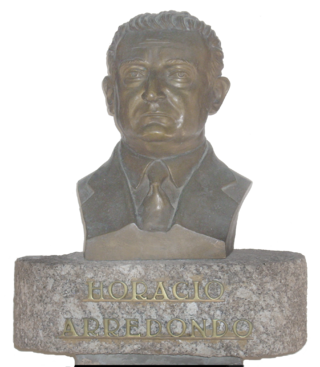 3
Horacio Arredondo de Navas fue un historiador, escritor y silvicultor uruguayo, al que se debe, entre otras cosas, la restauración de importantes monumentos históricos y la creación del parque...
3
Horacio Arredondo de Navas fue un historiador, escritor y silvicultor uruguayo, al que se debe, entre otras cosas, la restauración de importantes monumentos históricos y la creación del parque...
Juan María Gutiérrez
 3
Juan María Gutiérrez was an Argentine statesman, jurist, surveyor, historian, critic, and poet.
3
Juan María Gutiérrez was an Argentine statesman, jurist, surveyor, historian, critic, and poet.
Luisa Luisi
 3
Luisa Luisi Janicki was a Uruguayan poet, teacher, and literary critic. She was a born in Paysandú on December 14, 1883 and died in Santa Lucía, on April 10, 1940.
3
Luisa Luisi Janicki was a Uruguayan poet, teacher, and literary critic. She was a born in Paysandú on December 14, 1883 and died in Santa Lucía, on April 10, 1940.
Pedro Blanes Viale
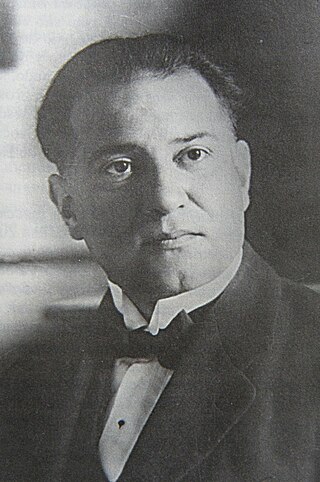 3
Pedro Blanes Viale fue un pintor uruguayo.
3
Pedro Blanes Viale fue un pintor uruguayo.
Alcides de María
 3
Alcides de María Navarrete fue un escritor y poeta de literatura gauchesca uruguayo. En el Barrio Nuevo Paris de Montevideo, una calle lleva su nombre. Va desde Maria Orticochea, pasa Av Islas...
3
Alcides de María Navarrete fue un escritor y poeta de literatura gauchesca uruguayo. En el Barrio Nuevo Paris de Montevideo, una calle lleva su nombre. Va desde Maria Orticochea, pasa Av Islas...
Daniel Fernández Crespo
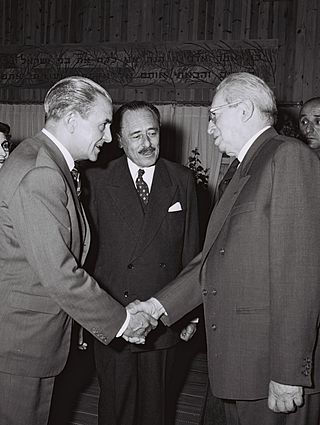 3
Daniel Fernández Crespo(28 April 1901 – 28 July 1964) was a Uruguayan political figure.
3
Daniel Fernández Crespo(28 April 1901 – 28 July 1964) was a Uruguayan political figure.
Galileo Galilei
 3
Galileo di Vincenzo Bonaiuti de' Galilei, commonly referred to as Galileo Galilei or simply Galileo, was an Italian astronomer, physicist and engineer, sometimes described as a polymath. He was born...
3
Galileo di Vincenzo Bonaiuti de' Galilei, commonly referred to as Galileo Galilei or simply Galileo, was an Italian astronomer, physicist and engineer, sometimes described as a polymath. He was born...
Heraclio C. Fajardo
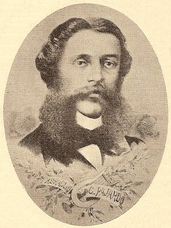 3
Heraclio C. Fajardo fue un poeta, periodista y político uruguayo afiliado al Partido Colorado.
3
Heraclio C. Fajardo fue un poeta, periodista y político uruguayo afiliado al Partido Colorado.
León Felipe
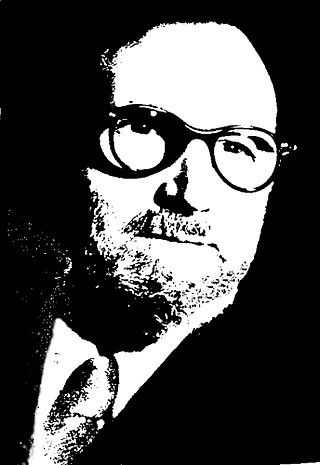 3
León Felipe Camino Galicia was an anti-fascist Spanish poet.
3
León Felipe Camino Galicia was an anti-fascist Spanish poet.
Baltasar Vargas de Figueroa
 3
Baltasar Vargas de Figueroa fue un pintor neogranadino.
3
Baltasar Vargas de Figueroa fue un pintor neogranadino.
Romeo Gavioli
 3
Romeo Alfredo Gavioli fue un músico, cantante de tango, candombe y director de orquesta típica uruguayo.
3
Romeo Alfredo Gavioli fue un músico, cantante de tango, candombe y director de orquesta típica uruguayo.
Bernardo Berro
 3
Bernardo Prudencio Berro was the President of Uruguay from 1860 to 1864.
3
Bernardo Prudencio Berro was the President of Uruguay from 1860 to 1864.
Amerigo Vespucci
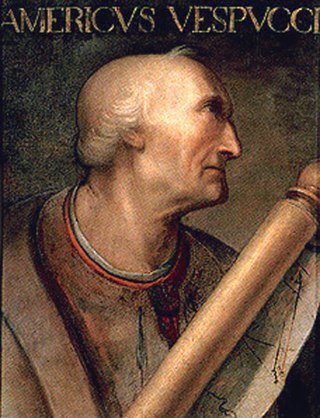 3
Amerigo Vespucci was an Italian explorer and navigator from the Republic of Florence, from whose name the term "America" is derived.
3
Amerigo Vespucci was an Italian explorer and navigator from the Republic of Florence, from whose name the term "America" is derived.
Emilio Oribe
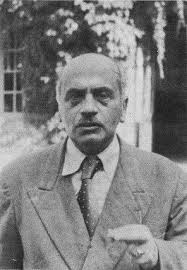 3
Emilio Nicolás Oribe, was a Uruguayan poet and philosopher.
3
Emilio Nicolás Oribe, was a Uruguayan poet and philosopher.
Felipe Ferreiro
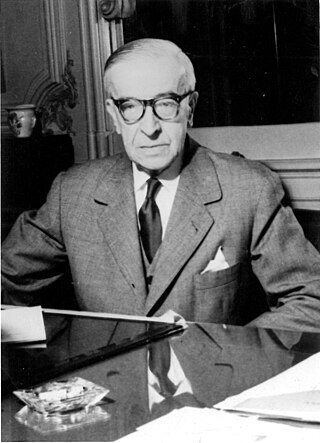 3
Felipe Ferreiro Gamio fue un político y escritor uruguayo.
3
Felipe Ferreiro Gamio fue un político y escritor uruguayo.
Eduardo Dieste
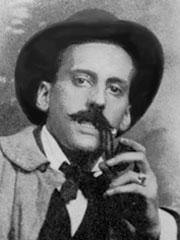 3
Eduardo Dieste Gonçalves fue un escritor y diplomático uruguayo.
3
Eduardo Dieste Gonçalves fue un escritor y diplomático uruguayo.
Juan Ponce de León
 3
Juan Ponce de León was a Spanish explorer and conquistador known for leading the first official European expedition to Puerto Rico in 1508 and Florida in 1513. He was born in Santervás de Campos,...
3
Juan Ponce de León was a Spanish explorer and conquistador known for leading the first official European expedition to Puerto Rico in 1508 and Florida in 1513. He was born in Santervás de Campos,...
Mario Arregui
 3
Mario Alberto Arregui Vago fue un escritor uruguayo.
3
Mario Alberto Arregui Vago fue un escritor uruguayo.
Ignacio Medina y Fernández de Córdoba
 3
Ignacio Medina y Fernández de Córdoba es un noble español que posee el título de duque de Segorbe, concretamente es el xix duque de Segorbe. En el ámbito profesional, es arquitecto y restaurador.
3
Ignacio Medina y Fernández de Córdoba es un noble español que posee el título de duque de Segorbe, concretamente es el xix duque de Segorbe. En el ámbito profesional, es arquitecto y restaurador.
Agustín Velázquez de Tineo
 3
Agustín Velázquez de Tineo fue un religioso español que alcanzó las dignidades eclesiásticas de capellán de honor de Felipe IV de España y obispo de Popayán.
3
Agustín Velázquez de Tineo fue un religioso español que alcanzó las dignidades eclesiásticas de capellán de honor de Felipe IV de España y obispo de Popayán.
Juan Pablo Terra
 3
Juan Pablo Terra (1924–1991) was a Uruguayan architect, sociologist, and political figure.
3
Juan Pablo Terra (1924–1991) was a Uruguayan architect, sociologist, and political figure.
José Alonso y Trelles
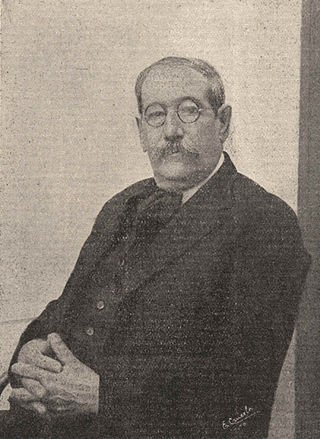 3
José Alonso y Trelles (1857–1924) was a Uruguayan poet who wrote under the pseudonym El Viejo Pancho.
3
José Alonso y Trelles (1857–1924) was a Uruguayan poet who wrote under the pseudonym El Viejo Pancho.
Carlos Racine
 3
Charles Racine, paisajista francés, que tuvo una destacada actuación en Uruguay.
3
Charles Racine, paisajista francés, que tuvo una destacada actuación en Uruguay.
Tabaré Etcheverry
 3
José Francisco Etcheverry Tort, más conocido como Tabaré Etcheverry o por su apodo "Pecho e' fierro", fue un cantante y compositor uruguayo en el género de la proyección folclórica de la región y en...
3
José Francisco Etcheverry Tort, más conocido como Tabaré Etcheverry o por su apodo "Pecho e' fierro", fue un cantante y compositor uruguayo en el género de la proyección folclórica de la región y en...
Juan José Burgos
 3
Juan José Burgos Freitas fue un político uruguayo perteneciente al Partido Nacional.
3
Juan José Burgos Freitas fue un político uruguayo perteneciente al Partido Nacional.
Gonzalo Rodríguez (racing driver)
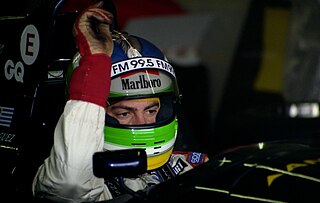 3
Gonzalo "Gonchi" Rodríguez Bongoll was a Uruguayan racing driver. He was killed in a crash at Laguna Seca Raceway during practice for a CART race.
3
Gonzalo "Gonchi" Rodríguez Bongoll was a Uruguayan racing driver. He was killed in a crash at Laguna Seca Raceway during practice for a CART race.
Alberto Boerger
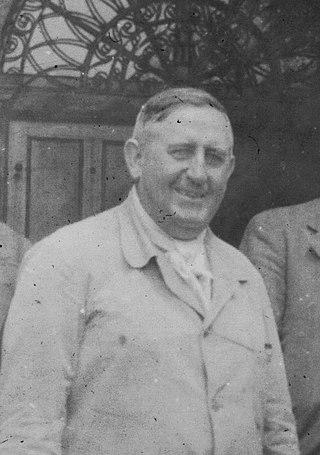 3
Albert Boerger was a German scientist who worked in the field of phytotechnology. He was born in Förde in Westphalia on November 4, 1881. In 1911, the government of Uruguay hired him to breed plants...
3
Albert Boerger was a German scientist who worked in the field of phytotechnology. He was born in Förde in Westphalia on November 4, 1881. In 1911, the government of Uruguay hired him to breed plants...
William Brown (admiral)
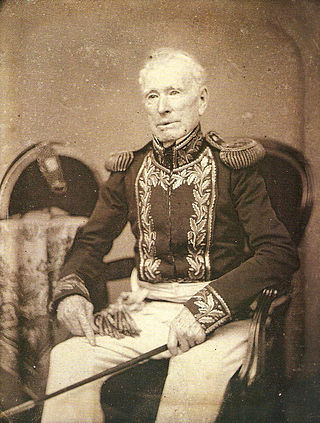 3
William Brown was an Irish sailor, merchant, and naval commander who served in the Argentine Navy during the wars of the early 19th century. Brown's successes in the Argentine War of Independence,...
3
William Brown was an Irish sailor, merchant, and naval commander who served in the Argentine Navy during the wars of the early 19th century. Brown's successes in the Argentine War of Independence,...
Lorenzo Latorre
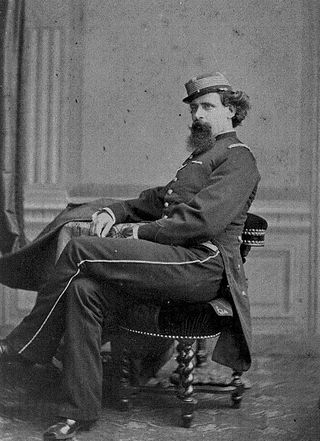 3
Lorenzo Latorre, full name Lorenzo Antonio Inocencio Latorre Jampen, was a Uruguayan officer and politician, who was a dictator and President of Uruguay from 10 March 1876 until 15 March 1880. During...
3
Lorenzo Latorre, full name Lorenzo Antonio Inocencio Latorre Jampen, was a Uruguayan officer and politician, who was a dictator and President of Uruguay from 10 March 1876 until 15 March 1880. During...
Óscar Diego Gestido
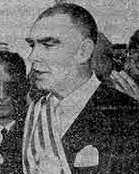 3
Óscar Diego Gestido Pose, was a Uruguayan politician and military officer who was the 32nd President of Uruguay from March 1967 until his death in December of the same year.
3
Óscar Diego Gestido Pose, was a Uruguayan politician and military officer who was the 32nd President of Uruguay from March 1967 until his death in December of the same year.
Juan Sebastián Elcano
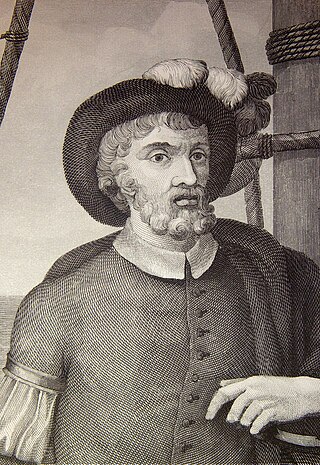 3
Juan Sebastián Elcano was a Spanish navigator, ship-owner and explorer of Basque origin from Getaria, part of the Crown of Castile when he was born, best known for having completed the first...
3
Juan Sebastián Elcano was a Spanish navigator, ship-owner and explorer of Basque origin from Getaria, part of the Crown of Castile when he was born, best known for having completed the first...
Antonio José de Sucre
 3
Antonio José de Sucre y Alcalá, known as the "Gran Mariscal de Ayacucho", was a Venezuelan general and politician who served as the president of Bolivia from 1825 to 1828. A close friend and...
3
Antonio José de Sucre y Alcalá, known as the "Gran Mariscal de Ayacucho", was a Venezuelan general and politician who served as the president of Bolivia from 1825 to 1828. A close friend and...
Amalia de la Vega
 3
Amalia de la Vega was an Uruguayan singer.
3
Amalia de la Vega was an Uruguayan singer.
Gumercindo Saraiva
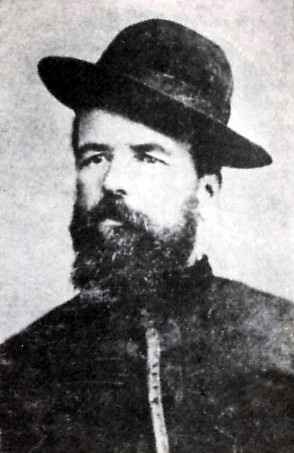 3
Gumercindo Saraiva was a Brazilian soldier, being one of the commanders of the rebel troops known as maragatos, during the Federalist Revolution.
3
Gumercindo Saraiva was a Brazilian soldier, being one of the commanders of the rebel troops known as maragatos, during the Federalist Revolution.
Miguel de Cervantes
 3
Miguel de Cervantes Saavedra was an Early Modern Spanish writer widely regarded as the greatest writer in the Spanish language and one of the world's pre-eminent novelists. He is best known for his...
3
Miguel de Cervantes Saavedra was an Early Modern Spanish writer widely regarded as the greatest writer in the Spanish language and one of the world's pre-eminent novelists. He is best known for his...
Louis Pasteur
 3
Louis Pasteur was a French chemist, pharmacist, and microbiologist renowned for his discoveries of the principles of vaccination, microbial fermentation, and pasteurization, the last of which was...
3
Louis Pasteur was a French chemist, pharmacist, and microbiologist renowned for his discoveries of the principles of vaccination, microbial fermentation, and pasteurization, the last of which was...
Lorenzo Carnelli
 3
Lorenzo Carnelli was a Uruguayan lawyer and politician who belonged to the National Party.
3
Lorenzo Carnelli was a Uruguayan lawyer and politician who belonged to the National Party.
Ismael Cortinas (politician)
 3
Ismael Cortinas (1884–1940) was a Uruguayan political figure, journalist and playwright.
3
Ismael Cortinas (1884–1940) was a Uruguayan political figure, journalist and playwright.